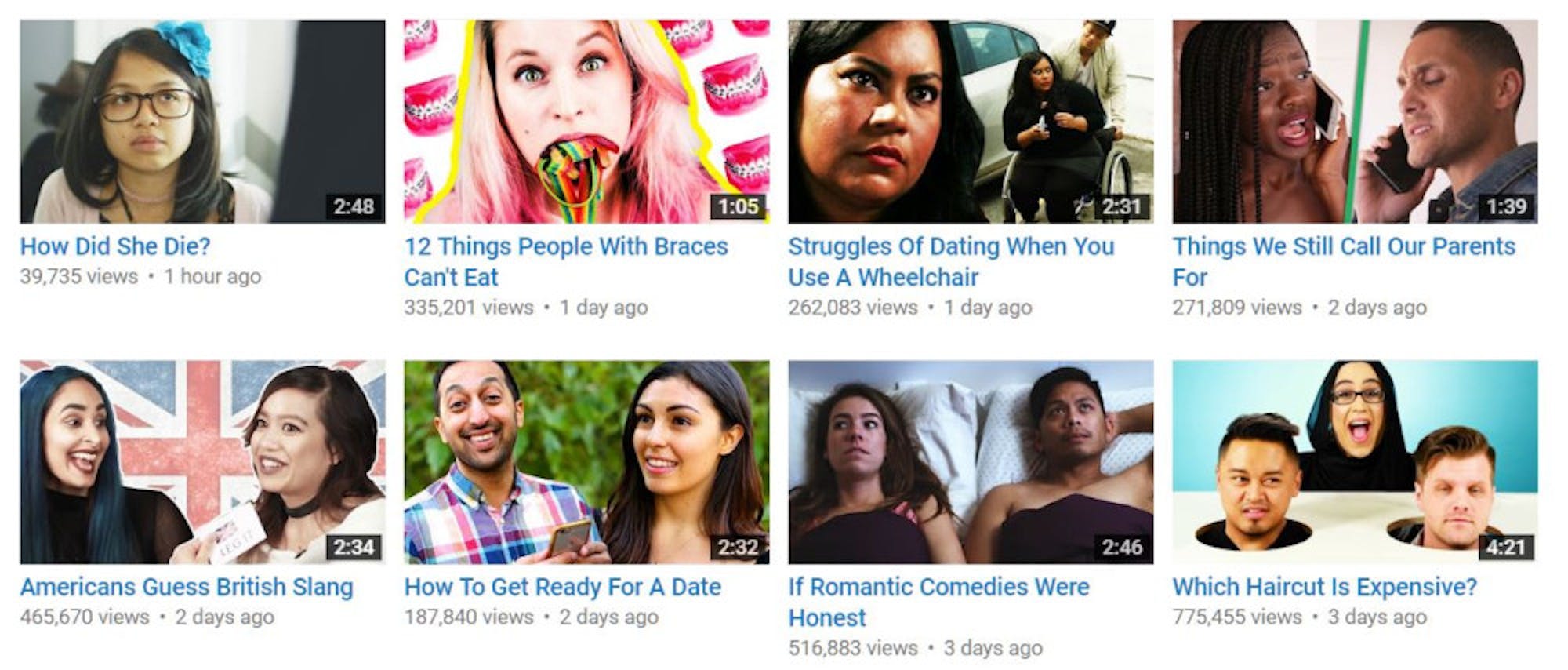When YouTuber Safiya Nygaard posted a photo of her vlog group LadylLike last month to announce that she was quitting her job at BuzzFeed, fans already knew why. In fact, her statement of resignation felt unnecessary. Over the last year, several vloggers from BuzzFeed’s YouTube channels left the company for similar reasons. Any “Why I Left BuzzFeed” video will reveal the same list: the company’s insistence on quantity over quality, the pressure to come up with click-worthy content, the hostile work environment and different creative visions between the company and the vloggers. While BuzzFeed’s vision of collective video making is certainly groundbreaking in various terms, it is also damaging the creative, free nature of Internet culture.
Nygaard is one of the co-founders of "Ladylike," a YouTube series under the umbrella of BuzzFeed Motion Pictures. A female counterpart to the hit BuzzFeed series "The Try Guys," "Ladylike" features product reviews and style tips. Popular videos include “Women Taste Edible Makeup” and “I Got Styled By Ladylike For A Week.” While most of the content is fluff true to BuzzFeed form, the series occasionally touches on more serious subjects such as gender norms and beauty ideals with videos such as “Women Take a Quiz About 1954 Home Ec” and “Women Get Photoshopped Into Cultural Beauty Standards.” "Ladylike" is one of the most popular series to air on BuzzFeed, expanding the BuzzFeed Yellow channel by 1.7 million subscribers alone in 2016.
The series can be seen as a case study to reveal the good, the bad and the ugly of BuzzFeed Motion Pictures. On the one hand, BuzzFeed has the resources to bring together various talents and can afford to pay high production costs. In addition to the team’s core six members, production of a video requires writers, editors, producers and crew members. While Ladylike members do the aforementioned jobs on a rotating basis, they still need additional help. And the end result is substantially more polished than the work of an independent vlogger. Following her departure, Nygaard decided to upload videos on her channel, yet the production quality of the videos has certainly decreased.
Although BuzzFeed is successful at bringing together creative people, the end result is often unsatisfying. Because BuzzFeed values quantity over quality and profit over acclaim, its videos are often silly and superficial. There’s no deeper meaning to be found in videos like “Women Try Boob Masks.” The occasional videos that promote body positivity and feminism address these issues in a watered-down way. “Women Take a Quiz About 1954 Home Ec,” for example, acknowledges the ridiculousness of the tips that this quiz offered to 1950s-era women but fails to thoroughly investigate the condition of women at that time. Moreover, it is understandable why Nygaard and so many others would like to move on from largely pointless, politically neutral content like edible makeup reviews.
Yet the worst of BuzzFeed’s approach to video making is the sheer amount of content it produces. BuzzFeed’s multiple YouTube channels (differentiated by different colors) produce videos daily, so there isn’t much space for content that would take more time to create. The time constraints and pressures can be a burden for a lot of creators, ultimately draining their creativity. The titles of Ladylike videos are all too similar to each other, perhaps because there is no time to think outside the box.
BuzzFeed offers fun content aiming to entertain a wide audience of viewers. It is therefore unrealistic to expect more complex work from the company. However, when producers are pressured to produce content that will make the company the most money, it is understandable why so many of the producers are quitting the company. While BuzzFeed’s presence satisfies viewers seeking harmless entertainment, it is also a sign of danger for independent content makers unable to compete with the giant company.
Vlogging in the BuzzFeed era: more content, less substance






